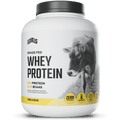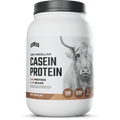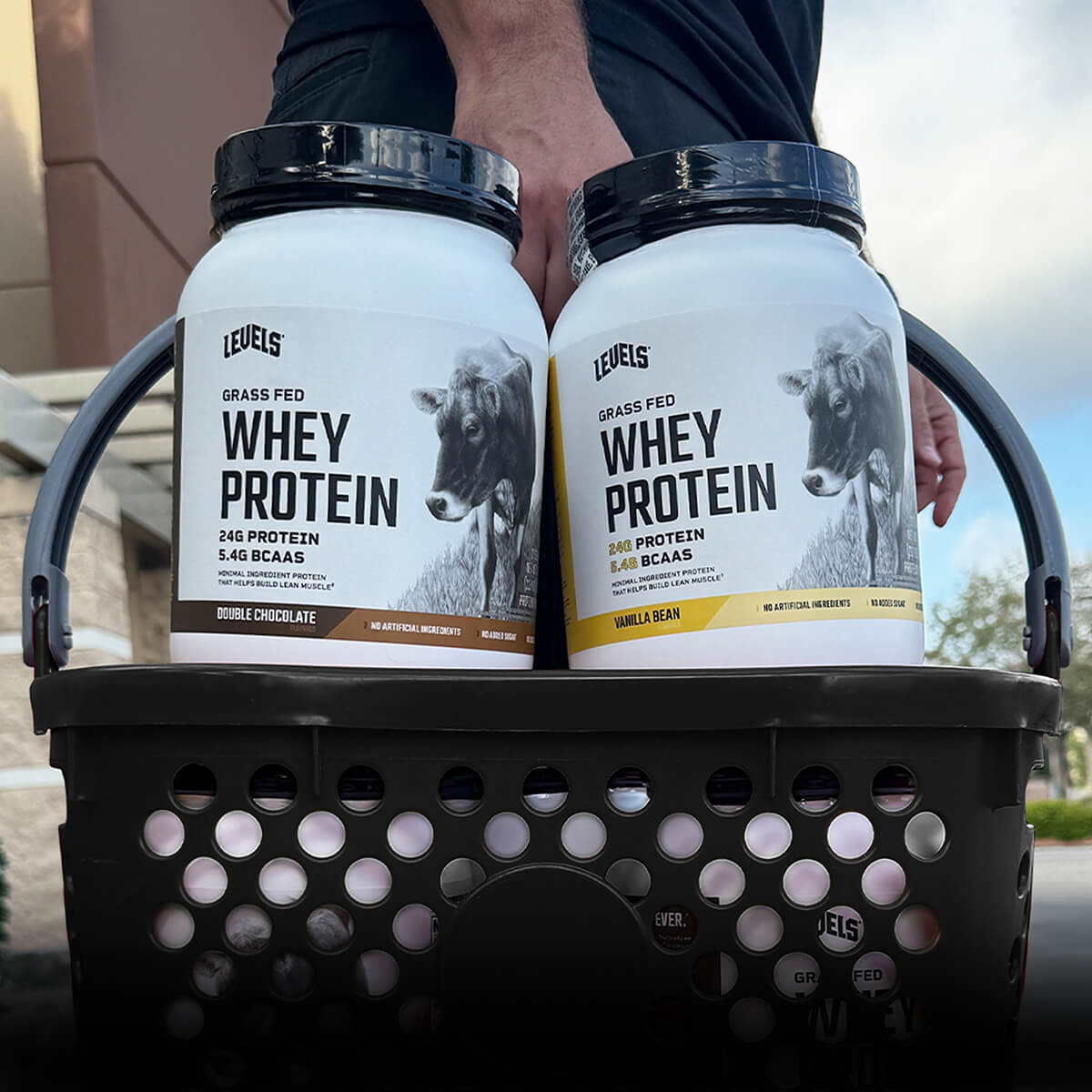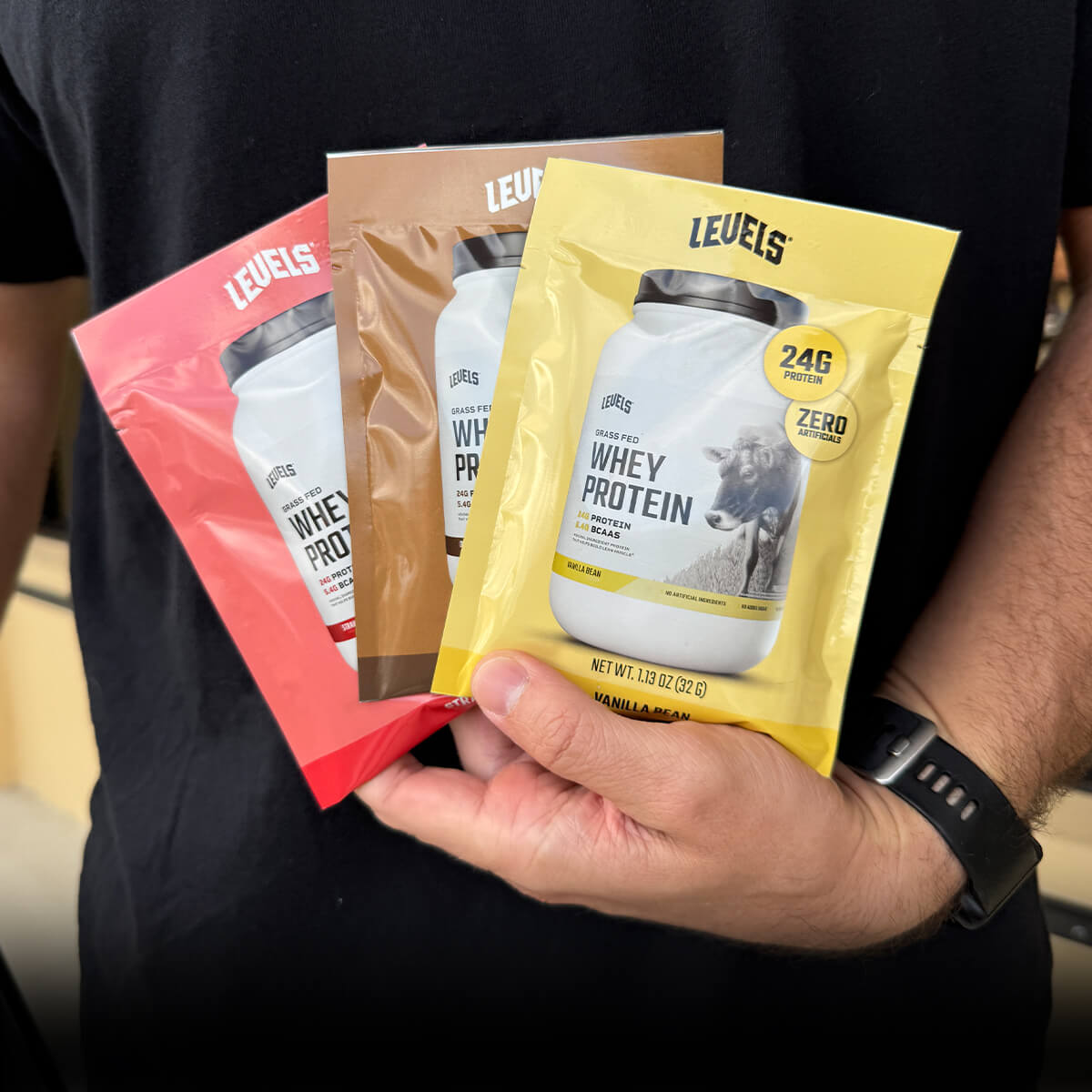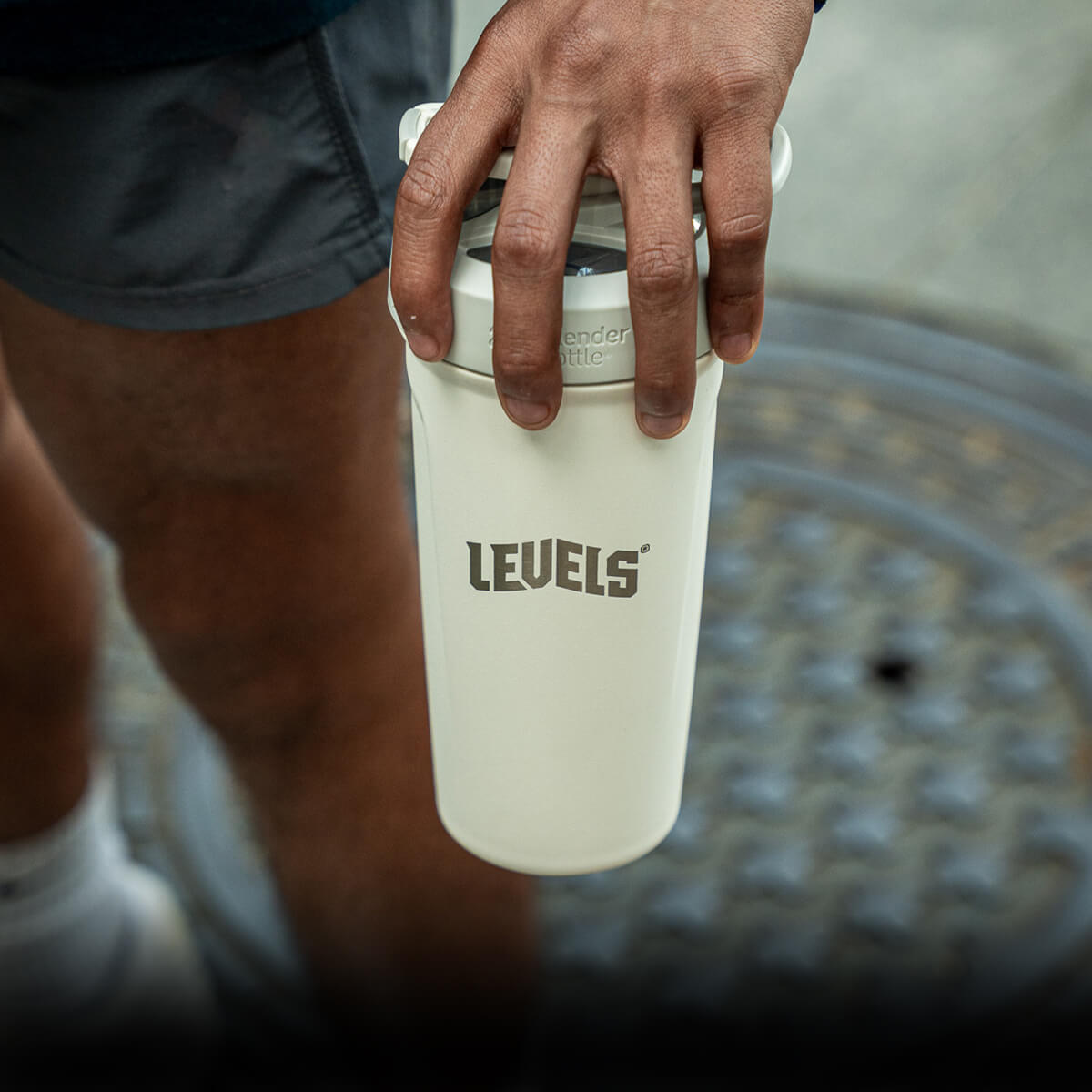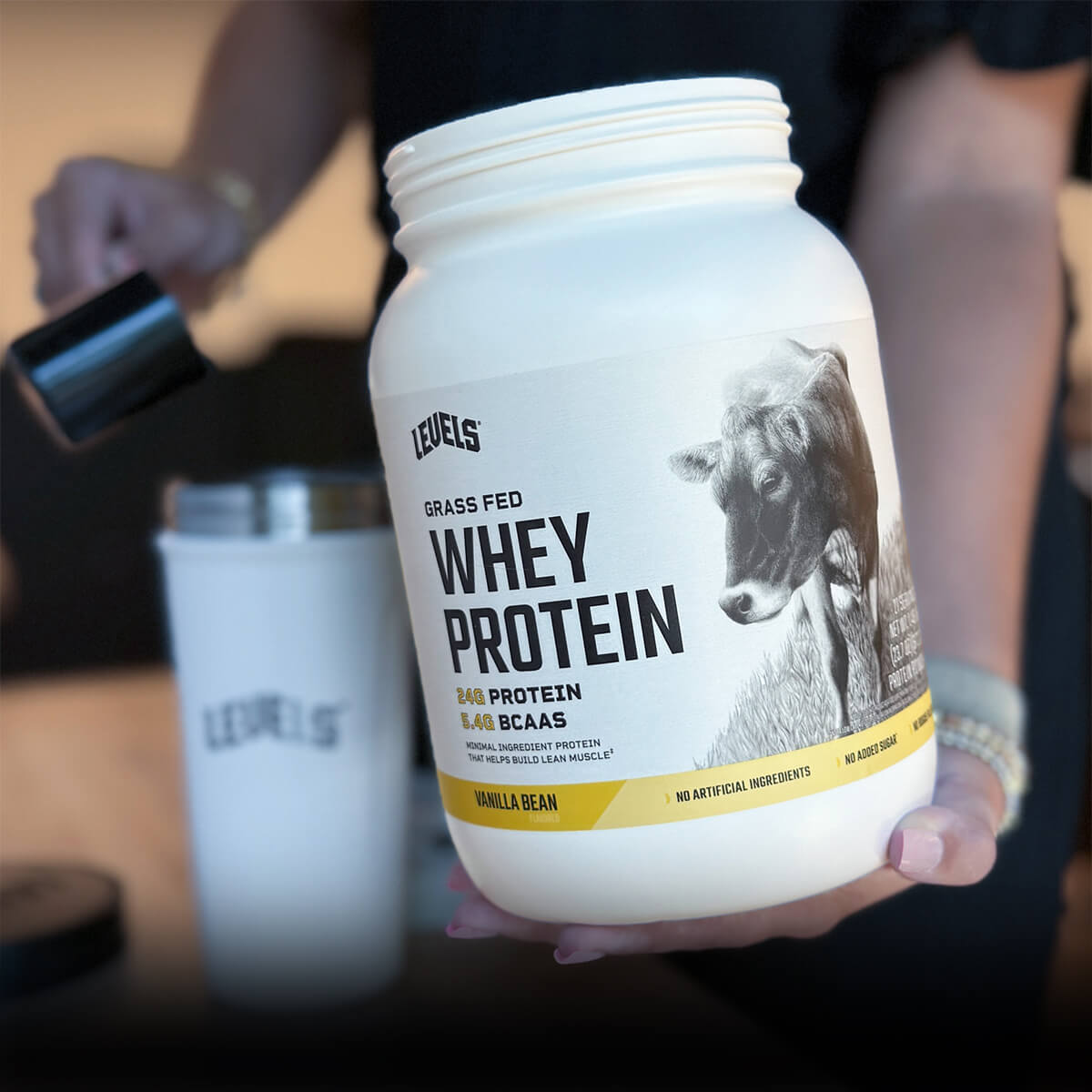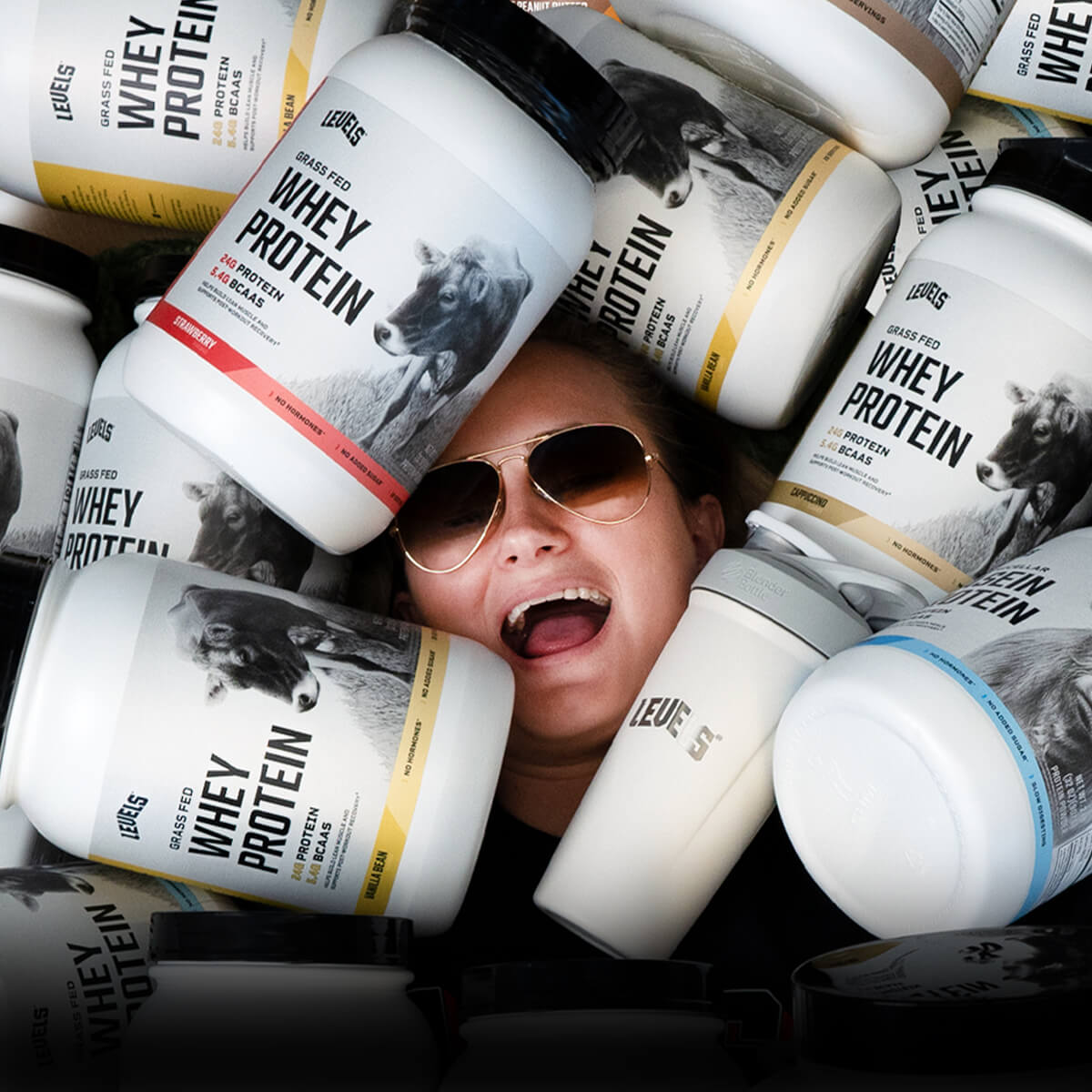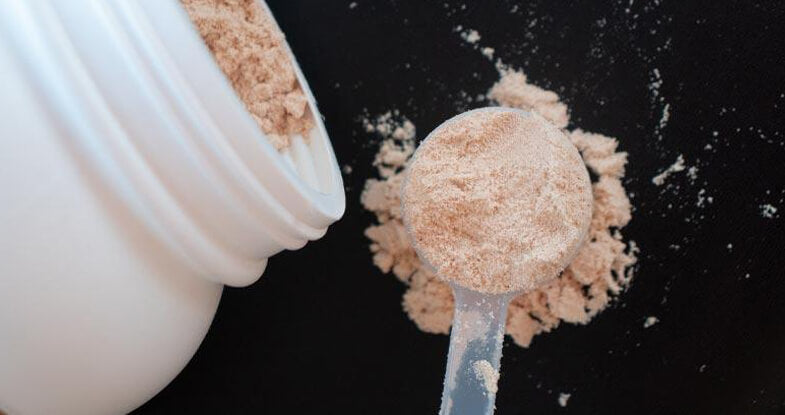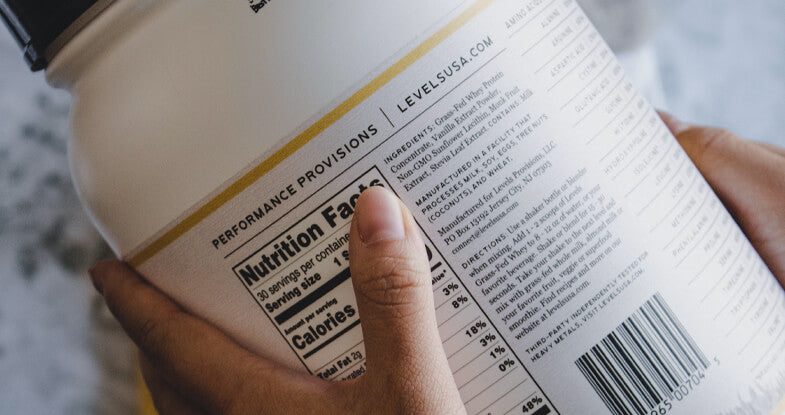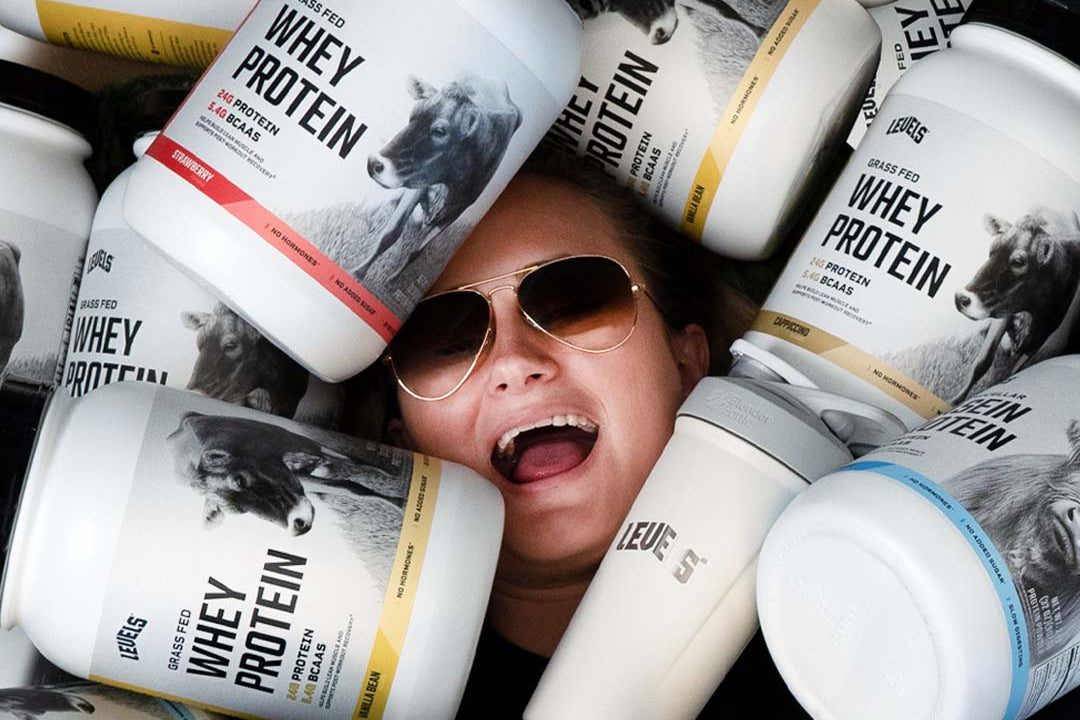Can protein powder make you gain fat? Not a chance.
But in case you’re concerned, we’ve got the scientific facts to put your mind at ease.
In this article, we’ll explore the myth of protein powder causing unwanted weight gain, what really happens to your body composition when you drink whey protein, and how you can use protein shakes to shed fat and gain lean body mass.
Can Whey Protein Make You Fat?
No. There’s simply no evidence that consuming whey protein will increase your body fat levels.
And let’s check the facts: a 30-gram serving of unflavored whey protein contains a mere 130 calories.
Conventional wisdom says a pound of fat contains 3500 calories (though newer research suggests the number of calories is higher), so you’d have to drink at least 27 servings of whey protein in addition to your normal calorie intake to put on just one pound of body fat[*].
Also, in reality, there are actually several reasons that whey protein can help you lose fat and maintain a healthy body weight:
- Protein increases your metabolism more than other macronutrients[*].
- Whey protein is highly filling and may decrease your hunger levels[*].
- Drinking post-workout protein shakes supports recovery, meaning you can achieve better results from exercise[*].
- Whey protein may help you retain healthy lean muscle mass during fat loss[*].
And a review of studies where people on weight loss diets replaced part of their calorie intake with whey protein found people taking protein supplements lost over 8 extra pounds of fat on average, compared to people who didn’t supplement protein[*].

Is there a downside to using whey protein during weight loss? Some people worry that insulin release caused by whey protein might inhibit fat loss.
But unlike insulin from carbs, the insulin release from whey doesn’t appear to lead to insulin resistance or weight gain[*]. And insulin spikes are probably part of the reason why whey works well to support lean muscle mass[*].
According to all the available evidence, whey protein significantly helps fat loss. But if you’re focusing exclusively on dietary supplements like whey, you’re probably missing the big picture.
Ultimately, to lose significant amounts of weight, you must eat fewer calories than you burn. Adding weight training, fasting, and fasted cardio to your regimen can also enhance your results and increase the amount of fat you burn.
On the other hand, if you eat more calories than you burn, you’re more likely to gain weight.
Losing Weight With Protein Shakes
Protein shakes alone don’t have the power to make you lose (or gain) significant amounts of weight all by themselves.
But with the proper strategy around protein consumption, you can create a huge advantage that translates to better fat loss results.
Here are the best ways to use protein shakes if your goal is weight loss:
- As a post-workout shake to speed recovery after weight training or other forms of exercise
- As the protein component of a meal replacement shake (or in high-protein recipes)
- To break your fast period
That said, don’t rely on whey protein as your only food source during fat loss. To stay healthy and avoid starvation mode, your body needs sufficient calories from other sources, not just protein shakes.
Does Whey Protein Make You Gain Weight?
As we discussed in the last two sections, adding whey protein shakes to your diet won’t automatically result in weight gain.

However, if your goal is to gain weight, supplementing whey protein is an excellent decision.
To gain muscle weight, you need to eat more calories than you burn, lift weights, recover, and repeat.
And along with creatine, whey is the most popular and best-studied sports supplement in the world for building muscle, enhancing physical performance inside and outside of the weight room, and speeding recovery[*][*].
In fact, some studies even show that drinking whey shakes reduces unwanted fat gain during bulking[*]!
For more tips on using protein shakes to reach your goals, read How Many Protein Shakes a Day: The Definitive Guide.
Final Thoughts
Whey protein shakes will not make you fat.
If you’re gaining unwanted fat, your diet needs a major overhaul. Fortunately, we’ve got nutrition articles that can set you straight.
But if you have your diet and training dialed in, drinking whey shakes can significantly enhance your results — especially if you time your shakes post-workout.
In other words, as long as you do the work, protein shakes can help you gain lean muscle mass during a bulking phase or burn more fat and hang onto healthy muscle if your goal is weight loss.
